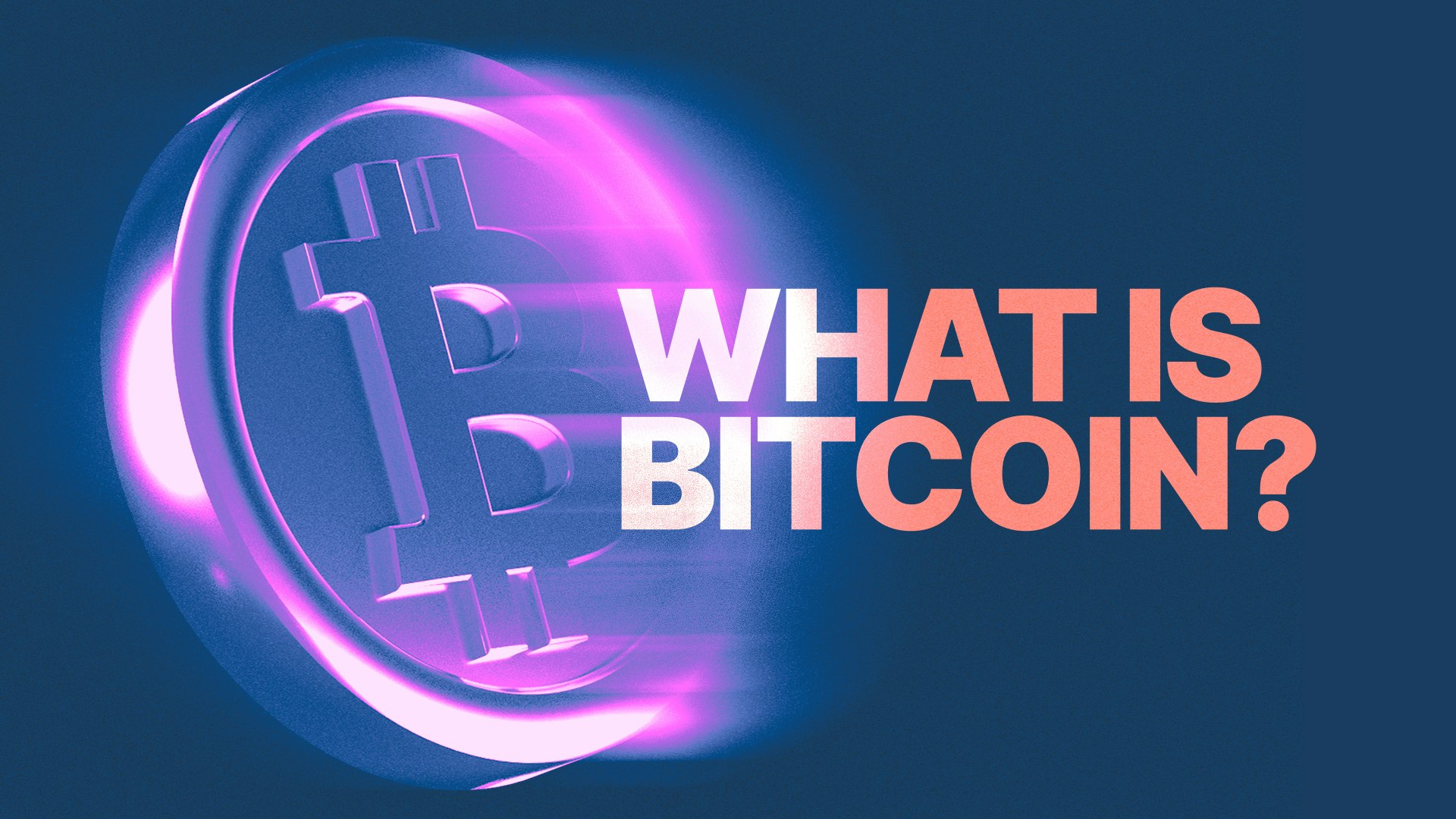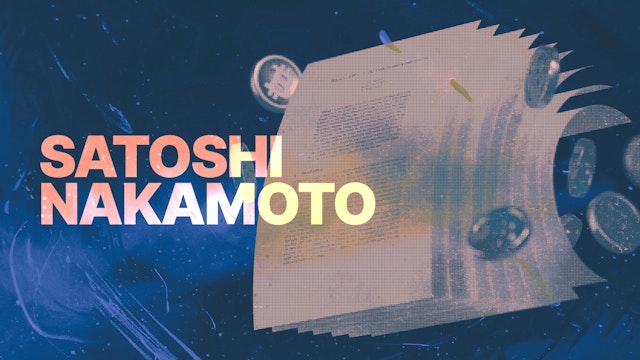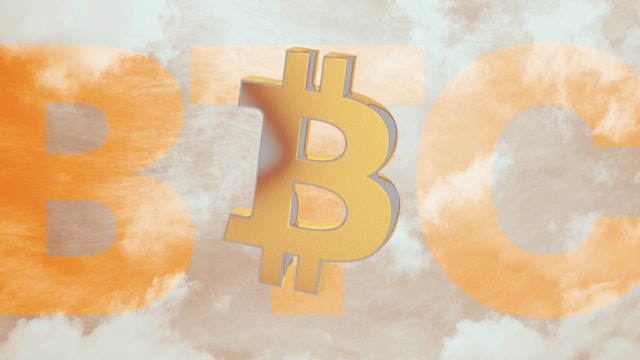Bitcoin for Beginners: A Complete Guide to the World’s First Cryptocurrency
Unpacking the history, technology, and mechanics behind the digital asset that helped popularise crypto, along with the key risks you need to understand before you get involved.
In this article...
- Bitcoin is a decentralised digital currency that enables peer‑to‑peer transfer of value without banks, but this system is complex and can be high risk for users who do not understand it.
- The network is secured by a public, append‑only ledger called a blockchain, which helps prevent fraud and double‑spending, although this does not remove the risk of loss or theft.
- New coins are created through a process called mining, with a fixed maximum supply of 21 million coins, but a limited supply does not guarantee future value or returns.

What is Bitcoin?
You have probably heard the word “Bitcoin” on the news, at work, or around the dinner table. Despite this, many people still find themselves asking what it actually is. Is it “internet money”? Or is it something else entirely?
These are reasonable questions. Digital currencies can sound technical, and the risks are often not obvious at first. Once you break Bitcoin into smaller pieces, the basic ideas are easier to follow. This guide explains how Bitcoin started, how it works, where the main risks sit, and why people pay attention to it.
What is Bitcoin?
Bitcoin (BTC) is widely recognised as the first cryptocurrency. It appeared in 2008 in a whitepaper written by an unknown person or group using the name Satoshi Nakamoto. The network went live in January 2009 with the mining of the first block, often called the “Genesis Block”.
The idea was to create an electronic payment system that relies on cryptography and code rather than trust in banks, governments, or payment companies.
Traditional money is issued and managed by central banks, and governments can change the rules that apply to it. Bitcoin works differently. It is a “permissionless” system, which means that anyone with an internet connection and the right software can use it. There are no bank managers, no credit checks, and no central authority to reverse mistakes.
The peer‑to‑peer difference
Bitcoin operates as a peer‑to‑peer (P2P) currency. People can send value directly to each other without a bank or card provider in the middle. In theory this can allow transfers across borders at any time of day, but it also means there is usually no refund or dispute process if something goes wrong.
One of Satoshi Nakamoto’s key contributions was a solution to the “double‑spending” problem. Digital files are easy to copy. That works for photos or music, but not for money. If you send one digital pound and keep a copy to spend again, the system fails.
Bitcoin reduces this risk by using a shared public record called a blockchain, instead of a single central database. This structure makes it extremely difficult to spend the same coins twice.
How does Bitcoin work?
To understand Bitcoin, you need a basic grasp of the blockchain technology that underpins it. You do not need to be a programmer, but you do need to understand that this is complex, experimental technology and not a savings account.
The shared spreadsheet analogy
You can think of a blockchain like a shared online spreadsheet that everyone can read but no one can quietly change in the background. This digital ledger contains a record of every Bitcoin transaction that has ever happened.
- Blocks: Recent transactions are grouped into “blocks”.
- Chaining: Each block is cryptographically linked to the one before it, which creates a historical chain that is very hard to alter.
- Transparency: The ledger is public. Anyone can see that a transaction took place and how much was moved, although the parties are usually identified only by alphanumeric addresses, not their real names.
This transparency helps the network verify that coins are not spent twice. However, it also means that Bitcoin is not fully private, and sophisticated analysis tools can sometimes link addresses to real‑world identities.
The “Layer 1” foundation
In technical terms, Bitcoin is a “Layer 1” or base layer network. It acts as the ultimate settlement layer for transactions that use Bitcoin. Some newer networks prioritise speed or extra functions such as smart contracts. Bitcoin focuses mainly on security and decentralisation, although this can mean slower transaction times and higher fees during busy periods.
Once a Bitcoin transaction has enough confirmations on the blockchain, reversing it becomes extremely difficult in practical terms. That finality can be useful for merchants, but it is a serious risk for users who send funds to the wrong address or fall victim to a scam, since there is usually no way to recover the coins.
Where does Bitcoin come from?
Unlike government money (fiat currency), which central banks can create at their discretion, new Bitcoin enters circulation through a set process written into the software. This process is called mining.
Bitcoin mining
Mining is how the network is secured and how new coins are created. Specialised computers around the world compete to solve complex mathematical problems. This uses a significant amount of electricity and requires dedicated hardware, which can be expensive to buy and run.
Miners collect unconfirmed transactions from the network and group them into a block. The first miner to solve the cryptographic puzzle for that block earns the right to add it to the blockchain. In return, the protocol rewards the miner with newly created Bitcoin plus transaction fees paid by users.
This method is called Proof of Work. It makes it very costly to try to attack the network, because an attacker would need huge amounts of computing power and energy. However, this also means that mining can be highly competitive, unpredictable in terms of rewards, and subject to changes in regulation or electricity costs.
The 21 million supply cap
One of Bitcoin’s most talked about features is its limited supply. The software specifies that there will only ever be 21 million BTC.
This limit is enforced by the network’s rules and would be extremely difficult to change without widespread agreement across users and miners. New Bitcoin is issued as a reward to miners, and this reward reduces roughly every four years in an event known as the “halving”. This slows the rate at which new coins come into circulation.
Some people see this fixed supply as a reason why Bitcoin could hold or increase its value over the long term. However, a limited supply does not guarantee rising prices. Demand can fall as well as rise, and Bitcoin’s price in pounds has been very volatile. There is a real possibility that your holdings could be worth much less in the future, or even go to zero.
Real‑life examples: How it works in practice
Bitcoin is a “fungible” asset. One Bitcoin is treated as equal to another, much like one ounce of gold is treated as equal to any other ounce. This property can make it suitable for certain uses, but you should remember that its value in fiat terms can change quickly.
As a medium of exchange
You can use BTC to pay for goods and services where it is accepted. This might include some online retailers, charities, or individuals. Because Bitcoin is digital, transfers can be made across borders without using traditional bank rails.
- Example: You might wish to send £200 worth of Bitcoin to a family member in another country. A bank transfer could take several days and involve currency conversion fees. A Bitcoin transfer can confirm within minutes and may be cheaper, particularly for smaller amounts, although fees vary and the exchange rate can move while you are waiting.
However, this comes with trade‑offs. The value of the Bitcoin you send can move sharply between the time you buy it and the time the recipient sells it. If you enter the wrong address, the funds may be permanently lost. There is usually no chargeback process and no central party to appeal to.
As a store of value
Some people point to Bitcoin’s limited supply and independence from any central bank, so it could be a store of value.
Others argue that Bitcoin’s extreme price swings and uncertain regulation make it unsuitable as a reliable store of value. The truth is that holding Bitcoin is highly speculative. You could see large gains, but you could also see large losses. You should not rely on Bitcoin to meet essential financial goals such as paying bills, funding retirement, or building an emergency fund.
Divisibility (the Satoshi)
A common misconception is that you need to buy a whole Bitcoin, which can cost tens of thousands of pounds. In reality, each BTC can be divided into 100 million units. The smallest unit is called a “Satoshi” or “Sat”.
This means you can buy a fraction, such as £50 or £100 worth of Bitcoin, through a platform that supports fractional purchases. This flexibility can make it easier to gain exposure, but it does not change the underlying risks of price volatility, hacking, scams, or technical mistakes. You should never invest more than you can afford to lose.
Bitcoin vs traditional money
It can be helpful to compare Bitcoin with the pounds in your bank account, also known as fiat currency. The two work in very different ways and are subject to different protections and risks.
- Authority: Fiat currencies such as GBP are controlled by central banks and supported by governments. Bitcoin is maintained by a decentralised network of participants running open‑source software.
- Access: Opening a bank account usually requires identification checks and approval, but you benefit from consumer protection frameworks, dispute procedures, and, in some cases, deposit protection schemes. A Bitcoin wallet can be created by almost anyone with the right software, but there is usually no formal protection if you lose access or are scammed.
- Supply: Governments and central banks can increase or reduce the money supply for economic reasons. Bitcoin has a fixed maximum supply, which can appeal to some investors, but it also means the price is driven largely by market demand and can be extremely volatile.
- Physicality: Fiat money exists as notes, coins, and electronic balances. Bitcoin is purely digital and exists only as entries on the blockchain that are controlled by cryptographic keys.
Using Bitcoin requires a higher level of personal responsibility than using a traditional bank account. If you make a mistake, it is usually permanent.
Risks and security red flags
Bitcoin gives you a high level of control over your funds, but this control comes with significant responsibility and risk. Cryptoassets are unregulated in many jurisdictions, and even where aspects of crypto activity are regulated, protections are generally much weaker than for traditional financial products.
Key risks to know
- Volatility: Bitcoin’s price in GBP can rise or fall sharply in very short periods. It is a high‑risk, speculative asset. You should think carefully about your financial situation and risk tolerance before buying it, and you should be comfortable with the possibility of losing your entire investment.
- Irreversible transactions: Once a transaction is confirmed, it is generally final. If you send BTC to the wrong address or to a scammer, you are very unlikely to get it back.
- Private key management: Access to your Bitcoin is controlled by a “private key”, which is similar to a master password. If you lose this key or the recovery phrase for your wallet, you will almost certainly lose access to your funds permanently. If someone else obtains it, they can move your coins without your consent.
- Scams and fraud: Fraudsters frequently target crypto users. Be cautious of anyone promising “guaranteed returns”, “risk‑free income”, or time‑limited offers that pressure you to act quickly. Legitimate firms will never ask you to share your private keys or recovery phrases, and you should never send crypto to “verify” an account or claim a prize.
- Exchange and platform risk: If you use a centralised exchange or platform, you are trusting that organisation to safeguard your assets and systems. Platforms can suffer hacks, technical failures, or financial distress. In some cases, customers have lost access to their crypto when platforms collapsed.
- Regulatory and tax risk: Rules around cryptoassets continue to develop. Future regulation could affect how you buy, sell, hold, or use Bitcoin. In the UK, buying and selling Bitcoin can create tax obligations, such as capital gains tax, and it is your responsibility to keep accurate records and report correctly.
If you decide to get involved, always start small, use reputable and appropriately registered providers, and take time to understand how wallets, addresses, and security work before sending larger amounts.
The future of Bitcoin
Bitcoin has grown from a small experiment in 2009 into a widely known digital asset, held by individuals, some companies, and various investment products. It has influenced thousands of other crypto projects, although being first does not guarantee that it will dominate in the long term.
As the network has matured, developers have built tools on top of Bitcoin to expand its use. So‑called “Layer 2” solutions, such as the Lightning Network, aim to process payments more quickly and cheaply than the base chain. These technologies may improve usability, but they also add extra technical complexity and their long‑term reliability is still being tested.
Traditional financial institutions have also started to offer products that give exposure to Bitcoin, such as exchange‑traded products and funds in some markets. These can make it easier for certain investors to gain exposure within existing investment accounts. However, they do not remove the underlying risk of Bitcoin’s price volatility, and they introduce additional risks such as product fees and counterparty risk.
No one can predict Bitcoin’s future price or long‑term role with any certainty. It may continue to develop as part of the broader digital asset market, or it may be overtaken by other technologies or face unfavourable regulation. If you choose to buy or hold Bitcoin, you should treat it as a high‑risk investment and only commit money you can afford to lose.
Summary: What is BTC?
Bitcoin, a peer to peer electronic cash system, was first described in a 2008 white paper by Satoshi Nakamoto.
It allows online payments directly between parties without the need for intermediaries like banks. BTC is a cryptocurrency, existing solely as data managed by a network of computers running BTC software. Users send BTC over this network, with transactions recorded on a public ledger. These transactions are secured and verified using computational power, with miners receiving a block reward for their efforts.
While not tied to the stock market, BTC can be bought and sold on cryptocurrency exchanges. Each user controls their BTC with a private key, a secret code necessary to authorise transactions. Early discussions about Bitcoin often took place on mailing lists, as it was a new technology gaining traction.

Suggested Articles

Who Is Satoshi Nakamoto, the Mysterious Bitcoin Creator?
The mysterious creator of Bitcoin has never been exposed... yet. Who is it? Here's what we know so far... Read more
Bitcoin Dominance: Is Alt Season Near? Technical Analysis May Provide Clues
What is Bitcoin Dominance? And how can keeping an eye on it give insight into alt season? Here is the explainer.Read more
How to Buy Bitcoin (BTC) in the UK the Convenient Way
Want to Buy Bitcoin in the UK? Buy BTC the convenient way by using CoinJar. They have been in operation since 2013.Read moreBrowse by topic
Standard Risk Warning: The above article is not to be read as investment, legal or tax advice and it takes no account of particular personal or market circumstances; all readers should seek independent investment advice before investing in cryptocurrencies.
The article is provided for general information and educational purposes only, no responsibility or liability is accepted for any errors of fact or omission expressed therein. Past performance is not a reliable indicator of future results. We use third party banking, safekeeping and payment providers, and the failure of any of these providers could also lead to a loss of your assets.
We recommend you obtain financial advice before making a decision to use your credit card to purchase cryptoassets or to invest in cryptoassets.
Capital Gains Tax may be payable on profits.
CoinJar's digital currency exchange services are operated in the UK by CoinJar UK Limited (company number 8905988), registered by the Financial Conduct Authority as a Cryptoasset Exchange Provider and Custodian Wallet Provider in the United Kingdom under the Money Laundering, Terrorist Financing and Transfer of Funds (Information on the Payer) Regulations 2017, as amended (Firm Reference No. 928767).
In the UK, it's legal to buy, hold, and trade crypto, however cryptocurrency is not regulated in the UK. It's vital to understand that once your money is in the crypto ecosystem, there are no rules to protect it, unlike with regular investments.
You should not expect to be protected if something goes wrong. So, if you make any crypto-related investments, you're unlikely to have recourse to the Financial Services Compensation Scheme (FSCS) or the Financial Ombudsman Service (FOS) if something goes wrong.
The performance of most cryptocurrency can be highly volatile, with their value dropping as quickly as it can rise. Past performance is not an indication of future results.
Remember: Don't invest unless you're prepared to lose all the money you invest. This is a high-risk investment and you should not expect to be protected if something goes wrong. Take 2 mins to learn more.
UK residents are required to complete an assessment to show they understand the risks associated with what crypto/investment they are about to buy, in accordance with local legislation. Additionally, they must wait for a 24-hour "cooling off" period, before their account is active, due to local regulations. If you use a credit card to buy cryptocurrency, you would be putting borrowed money at a risk of loss.
We recommend you obtain financial advice before making a decision to use your credit card to purchase cryptoassets or to invest in cryptoassets.
Your information is handled in accordance with CoinJar’s Privacy Policy.
Cryptoassets traded on CoinJar UK Limited are largely unregulated in the UK, and you are unable to access the Financial Service Compensation Scheme or the Financial Ombudsman Service.
We use third party banking, safekeeping and payment providers, and the failure of any of these providers could also lead to a loss of your assets.
We recommend you obtain financial advice before making a decision to use your credit card to purchase cryptoassets or to invest in cryptoassets. Capital Gains Tax may be payable on profits.
CoinJar’s digital currency exchange services are operated in the UK by CoinJar UK Limited (company number 8905988), registered by the Financial Conduct Authority as a Cryptoasset Exchange Provider and Custodian Wallet Provider in the United Kingdom under the Money Laundering, Terrorist Financing and Transfer of Funds (Information on the Payer) Regulations 2017, as amended (Firm Reference No. 928767).
Apple Pay and Apple Watch are trademarks of Apple Inc. Google Pay is a trademark of Google LLC.
This site is protected by reCAPTCHA and the Google Privacy Policy and Terms of Service apply.

